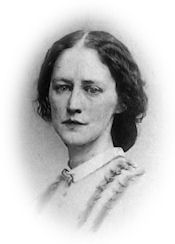—The Virginia Convention passed an ordinance to provide against the sacrifice of property, and to suspend proceedings in certain cases. It is to apply only to debts due non-residents, and not to those due the State. The ordinance is to remain in force until repealed or changed by the Convention or the General Assembly; and if not so repealed or changed, is to expire at the end of thirty days after the first day of the General Assembly.— National Intelligencer, May 7.
—The school-teachers of Boston, Mass., relinquished the following proportion of their salaries during the continuance of the national troubles:
Superintendent of Schools and Masters of Latin, English High and Girls’ High and Nora—25 per cent.
Masters of Grammar Schools and Sub-masters of Latin and English High Schools—15 per cent.
Sub-masters of Grammar Schools and Ushers of Latin and English High Schools—12½ per cent. Ushers of the Grammar Schools—10 per cent.
The aggregate of the percentage on the salaries will amount to between $12,000 and $13,000.—N. Y. World, May 8.
—The first cannon was cast in Nashville, Tenn, last Saturday, April 27.—Charleston Mercury, May 8.
—The members of the New York Yacht Club met, and resolved to offer, through the Commodore, the services of all their yachts to the Government of the United States for any duty compatible with the qualities and dimensions of the vessels.—N. Y. Tribune, May 2.
—A. H. Stephens, Vice-President of the seceding States, arrived at Atlanta, Georgia, on his return from Virginia. He was received by a crowd of citizens, to whom he made a speech.—(Doc. 120.)
—The New Jersey Legislature met, and Gov. Olden delivered his Message, recommending a loan of $2,000,000 for war purposes, and a State tax of $100,000 per annum; the thorough arming of the State, and the raising of four regiments additional to those called for, to be held subject to the call of the Government. He also recommended that provision be made for the defence of the Southern part of the State, either by fortified posts or by an intrenched camp.—N. Y. Tribune, May 1.
—Daniel Fish, charged with selling guns to the South, was examined before the U. S. Commissioner and discharged.—N. Y. Herald, May 1.
—The First Battalion of the Third Alabama Regiment left Montgomery this morning for Virginia .—Col. Kershaw and staff, with Captains Richardson, Hasles, and McMannus’ companies of South Carolina troops arrived at Richmond, Va., this evening at 5 o’clock.—Charleston Mercury, May 1.
—General Harney is released by Governor Weber of Virginia.
The Washington City Councils passed a series of resolutions, expressing the strongest devotion to the Union, and thanking the citizen soldiery of the North now there, for coming forward so promptly at the call of the Government.—N. Y. Times, May 1.
—The Toronto (Canada) Globe of to-day, in a long article on American affairs, says that the North, by their impatience with reference to President Lincoln’s policy, ignore the stupendous and delicate task he has before him, and will drive the country to anarchy and chaos.
It advocates strengthening Mr. Lincoln’s hands, and to abstain from perplexing his councils.
The Leader, the Government organ, fears that Canada may become involved, and advocates an armed neutrality, and suggests that the Canadian Government represent to the imperial authorities the expediency of sending six or eight regiments of the line for the protection of the frontier.
—The Palmetto Guard, Marion Artillery, and German Artillery returned from Morris’ Island to Charleston, S. C. “Their brave and noble actions during the bombardment of Fort Sumter are not forgotten, we can assure them, but will ever live in grateful remembrance.”—(Doc. 121.)— Charleston News, May 1.
—A United States Armory is to be established at Rock Island, Ill., in the place of the one destroyed at Harper’s Ferry.—N. Y. Tribune, April 30.
The Twenty-Eighth Regiment N. Y. S. M., composed of the best class of Germans, and commanded by Colonel Bennett, left Brooklyn, N. Y., for the seat of war. At 11 o’clock the last farewell was said; the Regiment formed, about 800 men, and headed by Meyers’ Band and a corps of drummers and fifers, they marched through Myrtle avenue and Fulton street to Fulton Ferry, where they embarked on board the ferry-boat Nassau, and were taken direct to the steamer Star of the South, then lying at Pier No. 36 North River. The streets through which they marched were lined with enthusiastic citizens to bid the troops God speed, and from nearly every house waved the Stars and Stripes and those other inspiring signals—white handkerchiefs. The troops were everywhere cordially received. At the foot of Fulton street a few brief farewells were said, and amid the booming of cannon and the cheers of the populace, the troops took their departure.
Fifty-seven recruits for Company G, Capt. Thorne, and a number for Capt. Sprague’s Company of the Thirteenth Regiment, went with the Twenty-eighth to join their Regiment at Annapolis.—(Doc. 122.)
—A meeting of the Harvard Medical School was held in Cambridge, Mass., at which the following resolution was adopted:
Resolved, That we, the members of the Harvard Medical School, do here and now resolve ourselves into a volunteer medical corps, and as such do hereby tender our services to the Governor of this Commonwealth, to act in behalf of this State or country, in whatever capacity we may be needed.—Boston Transcript, May 1.
—Citizens of Philadelphia, representing all parties, addressed a congratulatory letter to Lieut.-General Scott.—(Doc. 123.)
—Yesterday the Louisiana Guards, and to-day the Montgomery Guards, left New Orleans for the seat of war in Virginia. The former company, previous to their departure, were presented with a beautiful flag by Mrs. A. H. Seaman at her residence.—N. O. .Delta, April 30.
![]()










